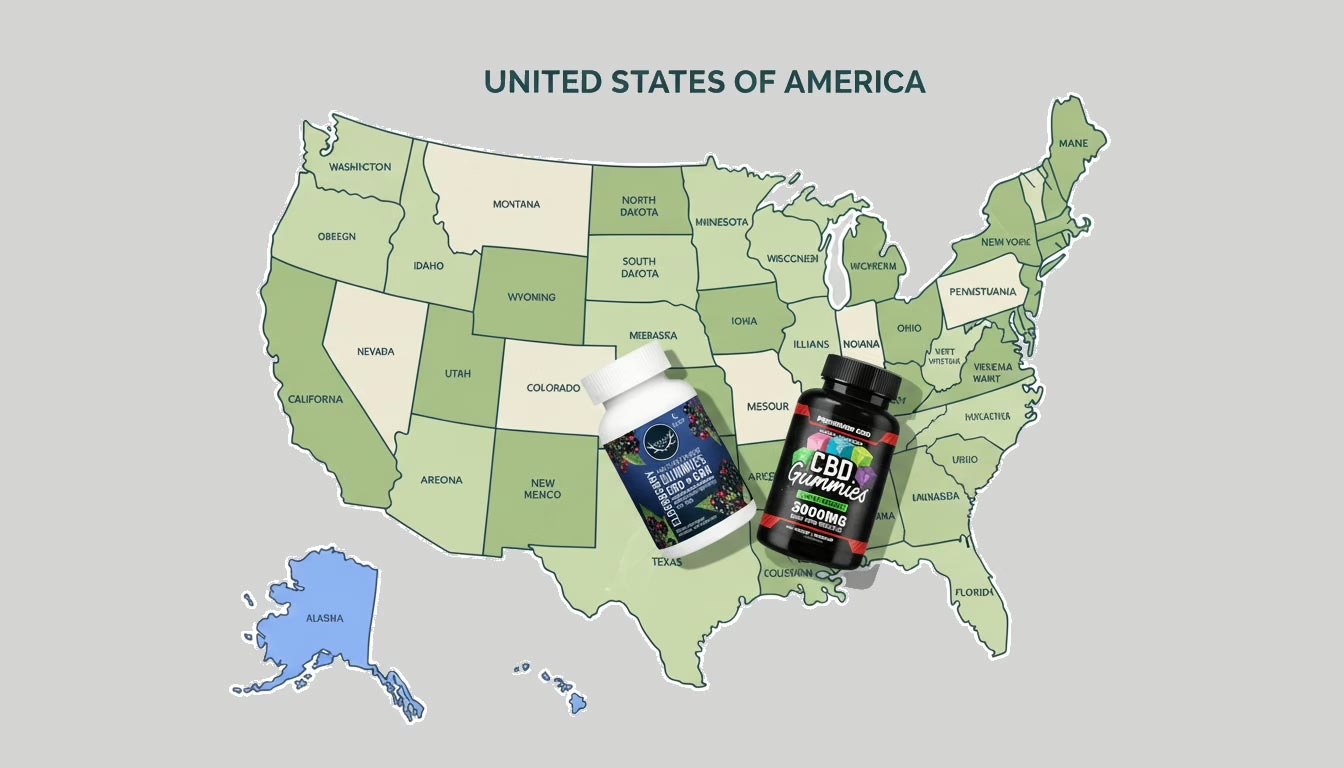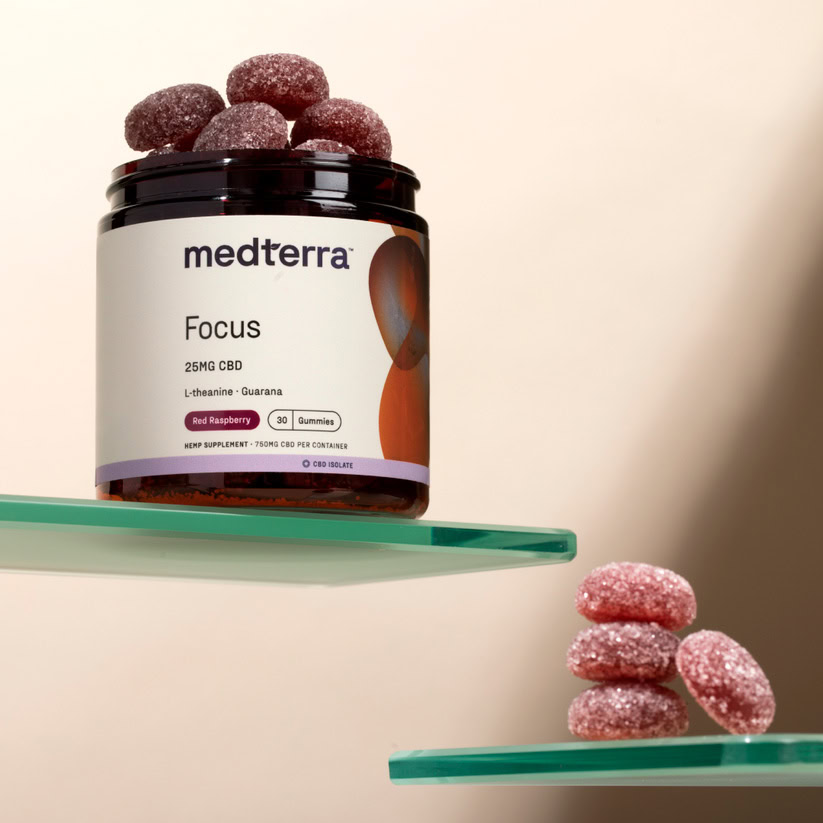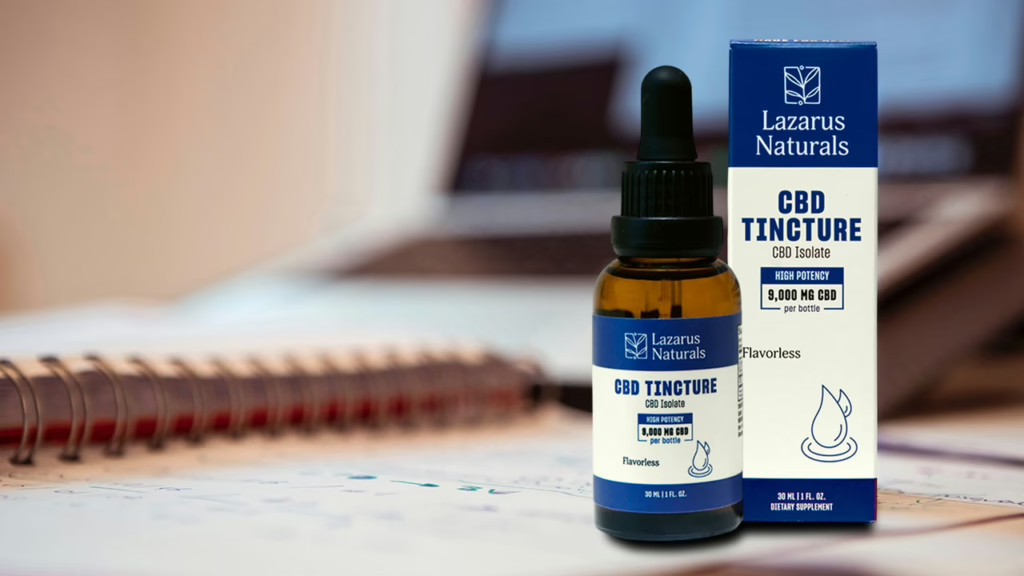Are CBD Gummies Illegal?
Summarize

Per the 2018 Federal Farm Bill, hemp-derived CBD gummies are not illegal if they contain a THC limit of less than 0.3%. The issue now is that some producers have developed synthetic THC, like delta-8 THC and delta-10 THC. CBD products made in compliance with the intent of federal hemp laws and regulations are not psychoactive. The synthetic THC compounds are psychoactive, so many states are passing laws or are planning on reviewing current laws on CBD edibles, including gummies, to make them more restrictive. This is creating a lot of confusion among consumers and in the industry about the legality of CBD gummies.

TL;DR (Too Long; Didn’t Read):
The 2018 Federal Farm Bill allows all hemp-derived CBD products to contain up to 0.3% THC on a dry weight basis.
CBD gummies containing up to 0.3% THC from hemp extract are legal. State laws for hemp-derived CBD gummies are being passed to ban synthetic THC compounds, establish age restrictions for purchasing CBD gummies, limit the type of businesses that can sell CBD, and make other changes.
Table of Contents
Federal Laws on CBD Gummies
In 2018, the Agriculture Improvement Act, colloquially called the 2018 Farm Bill, legalized industrial hemp (Cannabis sativa L.) It is a specific type of hemp plant that has no more than 0.3% of THC on a dry weight basis. This law removed industrial hemp from the marijuana category in the Controlled Substances Act.
Although this may seem straightforward, the Farm Bill has several loopholes. For example, it does not define THC, so there are CBD products that contain chemically produced (synthetic) THC, which are psychoactive.
The Farm Bill does maintain the Food and Drug Administration’s (FDA) authority over hemp products. The FDA, up to this point, mainly enforces regulations concerning illegal marketing practices and safety. Two important FDA restrictions are the following.
The FDA has not established the regulations for gaining product approval. The agency leaders do not believe that current regulations for supplements and food are appropriate for CBD. It sends out and publishes online warning letters when it decides a company is making health or medical claims.
The FDA does not enforce the accuracy of CBD content on labels, but rather focuses on unproven health claims. The warning letters for mislabeled CBD gummies are issued to the company to cease and desist, and they are made available on the FDA website.
Also, federal law allows the selling and shipping of hemp-derived CBD products across state lines if they have less than 0.3% THC by dry weight. Interstate commerce is allowed.
Are CBD Gummies Illegal Across All 50 States?
The lack of FDA guidance and the development of synthetic THC compounds have naturally led to the passing of U.S. state laws. They are trying to accomplish things like preventing children from easily accessing psychoactive CBD products and making synthetic THC compounds illegal.
The CBD industry is in a state of turmoil due to a lack of federal direction and the passage of unique laws by each state. The following are some general, critical points to keep in mind when reviewing the list of 50 states and the status of CBD gummies.
- Several states are in the process of changing their laws concerning hemp products or have passed laws taking effect January 1, 2026.
- Most new laws are challenged in court because they restrict the sale of many CBD products. CBD producers and their respective states are awaiting the courts’ ruling.
- The new laws are heavily focused on restricting the amount of THC in a CBD edible, like a CBD gummy, changing how THC is measured to include THCa and synthetic THC compounds, and where CBD products are sold.
- Many states have location restrictions as to the type of stores that can sell CBD gummies.
- Many states require any retailer, even convenience stores, to be licensed by a state cannabis control agency
- Many states now have labeling and testing requirements.
- Most states allowing more than .3% THC in a hemp product require sales to go through a licensed dispensary, while some states make the products illegal.
- Most states have age restrictions for purchasing CBD gummies and other CBD products. Buyers must be at least 21 years old.
Some states have made all THC illegal, meaning only THC-free CBD gummies can be sold.
It is essential to understand that federal law allows up to 0.3% THC in CBD products, so many retailers say their products are legal even when state law is more restrictive. They should state that their products are federally legal. Federal law permits the interstate commerce of legal products, but some states have banned or restricted the interstate sales of CBD products.
The following is a brief description of the current status of hemp-derived CBD products for each state. States and their regulatory agencies can change laws and rules at will. CBD gummy buyers should stay current on their state’s laws.
| State | Status | State Rules |
|---|---|---|
| Alabama | Allowed | Effective January 1, 2026, limit of 10 mg of THC per serving in edible hemp-derived products; The Alabama Alcoholic Beverage Control Board licenses the retailer; out-of-state companies can ship products into the state that meet federal laws |
| Alaska | Allowed | Follows federal guidelines and allows shipment of hemp products into the state |
| Arizona | Allowed | CBD gummies are not allowed to be sold through in-state retailers as of March 1, 2025; they can ship CBD gummies directly to consumers per federal interstate commerce laws |
| Arkansas | Restricted | CBD products cannot contain even a trace of THC; isolate CBD products remain legal; products shipped into the state must meet state law |
| California | Restricted | Must be derived from hemp, meet federal law, and only sold through licensed dispensaries; allows CBD gummies to be shipped into the state if they meet federal laws |
| Colorado | Allowed | Follows federal guidelines and allows shipment of hemp products into the state |
| Connecticut | Restricted | Hemp-derived products cannot contain more than 1 mg of THC per serving; the Department of Consumer Protection must register retailers; out-of-state companies can currently ship products into the state that meet federal law |
| Delaware | Allowed | Follows federal guidelines and allows shipment of hemp products into the state |
| Florida | Allowed | Follows federal guidelines and allows shipment of hemp products into the state |
| Georgia | Allowed | Follows federal guidelines and allows shipment of hemp products into the state |
| Hawaii | Not allowed | CBD gummies are not allowed to be sold through in-state retailers as of March 1, 2025; They can ship CBD gummies directly to consumers per federal interstate commerce laws |
| Idaho | Restricted | All CBD products must contain 0.0% THC, making only isolate CBD gummies legal; It allows shipment of CBD products from out-of-state that rigorously meet the THC-free requirement |
| Illinois | Allowed | Follows federal guidelines and allows shipment of hemp products into the state |
| Indiana | Allowed | Follows federal guidelines and allows shipment of hemp products into the state |
| Iowa | Allowed | Follows federal guidelines and allows shipment of hemp products into the state |
| Kansas | Restricted | All CBD products must contain 0.0% THC, making only isolate CBD gummies legal; It allows shipment of CBD products from out-of-state that rigorously meet the THC-free requirement |
| Kentucky | Allowed | Follows federal guidelines and allows shipment of hemp products into the state |
| Louisiana | Restricted | Consumable hemp products limited to 5 mg of hemp-derived THC per serving, which is stricter than federal law; allows shipment of hemp products into the state that meet state laws |
| Maine | Restricted | Follows federal guidelines for CBD content; CBD products cannot be shipped from another state into Maine |
| Maryland | Allowed | Follows federal guidelines and allows shipment of hemp products into the state |
| Massachusetts | Restricted | As of May 2025, THC total in hemp products is limited to .5 mg per serving, allows shipment of hemp products into the state |
| Michigan | Allowed | Follows federal guidelines and allows shipment of hemp products into the state; CBD products containing more than .3% THC can only be sold through a licensed retailer |
| Minnesota | Restricted | Consumable hemp products limited to 5 mg of hemp-derived THC per serving; seller must have a Lower-Potency Hemp Edible retailer license; allows shipment of hemp products into the state that meet state laws |
| Mississippi | Allowed with Restriction | Can buy ingestible CBD edibles that meet federal law only from a licensed medical cannabis dispensary per August 2025 AG advisory; also per the AG opinion, cannot ship CBD gummies to Mississippi from out of state |
| Missouri | Allowed with Coming Restriction | Currently follows federal guidelines and allows shipment of hemp products into the state; New regulations effective January 2026 add together THC and THCa to determine if the product meets or exceeds the .3% THC limit |
| Montana | Allowed with Restriction | Total THC includes THCA, delta-9 THC, and delta-8 THC; you can buy CBD edibles that meet federal law only from a licensed medical cannabis dispensary; it allows shipment of hemp products into the state |
| Nebraska | Allowed | Follows federal guidelines and allows shipment of hemp products into the state |
| Nevada | Restricted | CBD edibles, including CBD gummies, cannot have more than 1 mg per serving; THC is calculated as THC plus THCA; allows shipment of hemp products into the state |
| New Hampshire | Restricted | Total THC includes THCA and delta-9 THC; current state law is being debated, but is currently following the .3% THC cap; allows shipment of hemp products into the state |
| New Jersey | Restricted | THC total (delta-8, delta-10, THCa) in hemp products is limited to .5 mg of total THC per serving; retailer must be licensed; allows shipment of hemp products into the state |
| New Mexico | Allowed | Follows federal guidelines and allows shipment of hemp products into the state |
| New York | Restricted | Total THC includes THCA, delta-9 THC, and delta-8 THC; you can buy CBD edibles that meet federal law only from a licensed medical cannabis dispensary; it allows shipment of hemp products into the state |
| North Carolina | Allowed | Follows federal guidelines and allows shipment of hemp products into the state; a new law adding stricter THC and hemp derivative laws regulations is being discussed, meaning changes could be coming in 2026 |
| North Dakota | Restricted | Total THC includes THCA, delta-9 THC, and delta-8 THC; you can buy CBD edibles that meet federal law only from a licensed medical cannabis dispensary; allows shipment of hemp products into the state |
| Ohio | Allowed | Follows federal guidelines and allows shipment of hemp products into the state; synthetic THC is likely to be legislatively reviewed in 2026 |
| Oklahoma | Allowed | Follows federal guidelines and allows shipment of hemp products into the state |
| Oregon | Restricted | Currently follows federal guidelines, but new laws take effect on January 1, 2026 concerning the legal amount of THC and artificially derived cannabinoids allowed in the product; CBD gummy concentration of .3% THC or more is considered an “adult use cannabinoid” and only sold in a state-licensed retailers; can purchase up to 16 ounces of CBD gummies with more than .3% THC each day; allows shipment of hemp products into the state |
| Pennsylvania | Allowed with Restriction | As of 2025, the total THC limit is 5 mg per serving, which allows shipment of hemp products into the state |
| Rhode Island | Allowed | Follows federal guidelines and allows shipment of hemp products into the state |
| South Carolina | Allowed | Strict legal cap of 2 mg of THC plus synthetic THC per package; if the 2 mg cap is exceeded, there must be a ratio of 25:1 CBD to total THC; retailers must be registered with the state and are not allowed to sell products with synthetic THC forms; allows shipment of hemp products into the state |
| South Dakota | Allowed | Follows federal guidelines and allows shipment of hemp products into the state; synthetic cannabinoids are banned |
| Tennessee | Restricted | Currently follows federal guidelines, but new laws take effect on January 1, 2026, in which total THC is calculated as THC plus THCA and must meet .3% cap; also, online and delivery sales of hemp-derived cannabinoid products are banned |
| Texas | Restricted | Currently follows federal guidelines, but new laws are being considered with a debate on whether to ban consumable products with THC; allows shipment of hemp products into the state |
| Utah | Restricted | Allowed if total THC plus synthetic THC does not exceed .3% and total THC is not more than 5 mg per serving; allows shipment of hemp products into the state |
| Vermont | Allowed | Follows federal guidelines and allows shipment of hemp products into the state; maximum of 1.5 mg of THC per serving |
| Virginia | Restricted | Follows federal guidelines, but a new law proposed to include THCA in the total THC calculation, so expect changes in 2026; allows shipment of hemp products into the state |
| Washington | Restricted | Follows federal guidelines, but can only buy at state-licensed cannabis retail stores; synthetic cannabinoids are banned; allows shipment of hemp products into the state |
| West Virginia | Allowed | Follows federal guidelines, but can only buy at state-licensed cannabis retail stores; allows shipment of hemp products into the state |
| Wisconsin | Allowed | Follows federal guidelines, but new law proposed to include THCA in total THC calculation, so expect changes in 2026; allows shipment of hemp products into the state |
| Wyoming | Allowed | Follows federal guidelines in terms of the .3% THC limit, but bans hemp-derived products that are psychoactive due to compounds like synthetic THC; allows shipment of hemp products into the state |
Staying Safe & Compliant
Despite the confusing mix of laws, there are ways to stay safe and compliant. First, learn your state laws and federal laws to avoid potential legal issues.
➥ Only purchase CBD gummies from a reputable retailer, either online or locally, that has good customer reviews. Avoid buying CBD products from convenience stores and gas stations.
➥ Do not purchase CBD gummies that make health claims about CBD.
➥ Always review the Certificate of Analysis (COA) and compare the cannabinoid content to what the label states.
➥ Verify the CBD gummies are third-party tested.
➥ Review the COA to ensure the product is contaminant-free.
➥ Verify the company is transparent about their products by looking for information on the label, like the hemp source, the spectrum, and other ingredients.
➥ Remember to check the state laws when traveling if you decide to purchase CBD gummies.
Always check with your doctor before taking any CBD product. CBD can interact with some medications.
FAQs
Are CBD gummies illegal in all states?
CBD gummies are not illegal in all states. However, each state has different laws, and they may differ from federal law. For example, these laws may limit the amount of THC, ban sales at in-state stores, or require CBD gummies to be sold at state-licensed businesses. Several states only allow the sale of THC-free CBD edibles.
Are CBD gummies illegal internationally?
Similar to U.S. states, each country has its own laws and regulations specific to it. Many countries have made CBD illegal for recreational use or only allow CBD gummies for documented medical reasons.
Can you legally travel with CBD gummies?
This is a complex question. You can travel across state lines with CBD gummies because of the federal interstate commerce laws. However, you must also adhere to the laws of the state you are traveling through and to. For example, if a state limits THC content in CBD gummies to less than 0.3%, then it would be wise to only have CBD gummies with you that meet the lower THC amount.
When traveling overseas, TSA will allow you to carry CBD products in your checked or carry-on luggage. CBD gummies and other products must meet federal law, so they should contain less than 0.3%. The issue is that the destination country may not allow CBD products or may have different restrictions. It is crucial to research the CBD laws of the country you are traveling to before you leave the U.S.
Are CBD gummies legal in offices?
CBD gummies that meet federal law are legal. Whether they are legal in the office depends on the state laws and your employer’s office rules. Many employers have a drug-free workplace policy in place. The FDA considers CBD to be a drug, so it is banned from the office.
Industry Uncertainty Continues
CBD gummies are one of the fastest-growing product types in terms of sales. They are convenient and taste like candy. They are legal per the 2018 Farm Bill, but most states are crafting new laws that address loopholes in the federal law and specific concerns about how they are sold. It is important to check state laws, which can change each legislative session. Even the 2018 Federal Farm Bill is currently being debated with legislators at odds over whether to ban all THC. Always be an informed consumer, especially in an industry that continually faces uncertainty.
Sources
- https://www.congress.gov/bill/115th-congress/house-bill/2
- https://www.fda.gov/news-events/public-health-focus/warning-letters-cannabis-derived-products
- https://www.tsa.gov/travel/security-screening/whatcanibring/items/medical-marijuana
Share this post



0